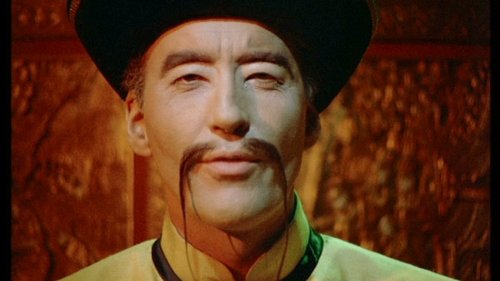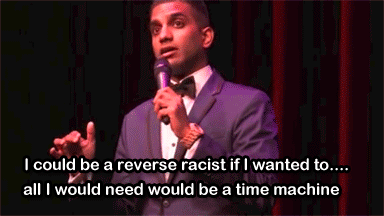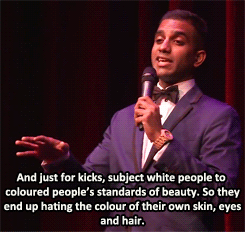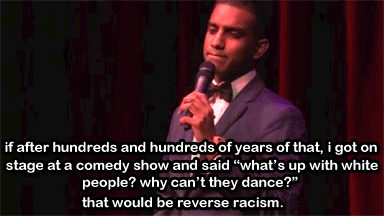The genre parody is certainly not a new ordeal but is definitely attached to the ideas of postmodernism, and most of us have at some point come across a genre parody in film or television. The early 2000s, for example, brought us the Scary Movie series, overflowing with parodies of the horror film genre in order to entertain and mock the codes we have all come to associate with horror. Also a notable example is This Is Spinal Tap (1984), that played off the documentary film and successfully breathed life into the mockumentary genre’s strategies that now plagues new media.
What is a genre parody though? To understand parody, we must first understand pastiche. Pastiche is a work of visual art, literature, theatre, or music that imitates the style or character of the work of one or more other artists (Wikipedia). Pastiche can be similar to paying homage to an earlier work or celebrating it. Parody employs the same strategy but instead the intention behind imitating is to mock or critique the content it is imitating, though there are exceptions that simply imitate for the sake of imitating. For this piece, however, I will focus on The Simpsons and its importance within genre parody.
In his book Watching with The Simpsons: Television, Parody, and Intertextuality, author Jonathan Gray “[examined] how audiences consume with a whole barrage of other images and structures learned from other items of media.” Gray’s analysis provides evidence that this is true by narrowing down three preexisting forms of media that the show critiques in its content—advertising, television news, and, the focus of this post, the “domesticom” genre.
The ‘domestic comedy’ is a category that was coined by Horace Newcomb but is also known as the family sitcom. The Simpsons is a perfect example of a commentary on this genre because it takes codes associated with it and reevaluates what they mean, inviting their audiences to decode a hundred different new meanings from the structure they have chosen to dismantle.
Like the sitcom, each episode of the The Simpsons is a self-contained narrative with a beginning, middle, and end—there is a catalyst that will set the action in motion or create chaos but at the end the natural order of things will be restored. In family sitcoms it seems problems within the family are always so easy to address or deal with, leaving the resolution to always be a peaceful one. Something terrible may have happened but it is never drastic enough to change the entire course of life for the characters.

But perhaps that mode of addressing the problem is not reflective of reality and this is where The Simpsons likes to question it—Bart, Homer, Lisa, Maggie, and Marge face altercations that may not always be fixable and sometimes downright ridiculous but never out of the realm of domestic life. And even when they are resolved they are not addressed in the same docile manner as the domestic comedy. They purposely challenge the structure of family and audiences can then question the authenticity of the ideologies that most family sitcoms present—like the myth of the ‘American Dream’ and the perfect family home. The relationships between the characters are not conventional ideas of sweet, loving siblings with parents that are representative of the ideal marriage between a man and a woman. Homer is this mess of a man who can’t quite seem to do much right but Marge somehow continues to say with him, Bart is a troubled youth who knows the principal’s office by heart and doesn’t have a strong suit in academics, and Lisa is presented as an often overly outspoken kid who refuses to conform. But despite their most unconventional characteristics, they still remain true to the idea that family love is unconditional, something they share above all else with the family sitcom.
The possibilities for analysis of the entire series may have no short end, in fact the list of meta references for this show keep growing but its success has certainly proven it to be worthy of its criticism/mockery of the family sitcom. So on that note and in true RHE 315 fashion, here’s a short video essay on The Simpsons.










